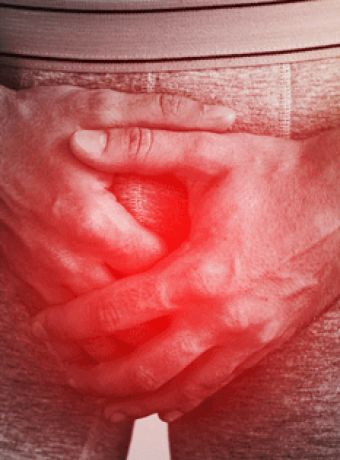Symptoms of Helicobacter pylori

Last Updated on May 10, 2024 by Lauretta Iyamu, PharmD
Helicobacter pylori (H. pylori) is extremely common yet underappreciated. The pathogen can alter your physiology and subvert the host’s immune response, allowing it to persist for years. Unlike most bacterial pathogens, H. pylori can live in your body for life unless specific treatment is given. Helicobacter pylori are the primary cause of peptic ulcers and gastric cancer. In the United States, an estimated annual cost of six billion dollars is linked with peptic ulcer disease. Read on to learn more about the “Symptoms of Helicobacter pylori disease.”
Symptoms of H. pylori
Many people with H. pylori infection often do not present any signs or symptoms, and it is unclear why this happens. The presence of bacteria in the gastrointestinal tract is not associated with the disease.
Gastric cancer kills over seven hundred thousand people annually worldwide. These bacteria can enter your body and live in your digestive tract even after many years.
H. pylori are present in the upper gastrointestinal tract of your stomach. H. pylori affect about fifty percent of the world’s population, which makes it a severe disease that should be well handled.
After many years, they can cause sores known as an ulcer. The condition was thought to be caused due to poor diet and stress.
The infection may lead to stomach cancer for some people if not well managed. Over eighty percent of cases of h. pylori are large with no symptoms, and you may not show signs of illness. If you have H. pylori, your doctor will initiate treatment with antibiotics.
Common signs and symptoms to watch out for that do occur with H. pylori include:
- An ache or burning pain in your abdomen
- Abdominal pain worsens if the stomach is empty
- Frequent burping
- Bloating
- Unintentional weight loss
- Stomach pain
- Nausea
- Belching
- Loss of appetite
- Vomiting
Pain is most often experienced when the stomach is;
- empty
- between meals
- the early morning hours.
The pain can be gnawing or biting in nature.
Causes of H. pylori
The exact mechanism of H. pylori infection occurs is still unknown. The bacteria require little oxygen to survive.
H. pylori bacteria may spread from person to person through direct contact with;
- Saliva
- Vomit
- Fecal matter
- Contaminated food or water
- Contact with unsanitized hands or surface
The prevalence of H. pylori infection is much less in western Europe and North America. However, over fifty percent of the population in eastern and South America is affected.
The age at which the infection is contracted influences the disease risk. The younger generation is at a greater risk of atrophic gastritis (fibrosis). This can increase the risk of gastric ulcers and cancer.
H. pylori infections acquired at an older age are more likely to cause a duodenal ulcer.
Stomach Ulcers
People with an H. pylori infection have a ten to twenty percent lifetime risk of stomach cancer. This most often occurs mainly in the stomach and can result in;
- gastric ulcer or
- duodenal ulcer
You can identify which ulcer is present by the timing of symptoms observed.
- A gastric ulcer is also known as a peptic ulcer. It usually causes pain shortly after eating.
- In a duodenal ulcer, the pain tends to develop two to three hours after eating.
The severity of symptoms can vary and typically overlaps with those of gastritis. Therefore, you should seek immediate medical care if you are present with these symptoms.
Common signs and symptoms of a severe ulcer include:
- Black stool (indicates a sign of bleeding)
- Bloody stool (Indicates profuse bleeding)
- Shortness of breath
- Lightheadedness or fainting
- Vomiting of blood
- Difficulty in breathing
- Tiredness of fatigue
Stomach Cancer
Helicobacter pylori account for about sixty percent of cases of stomach cancers. It is the most common risk factor of stomach cancer, with about one to two percent lifetime risk.
It is thus essential to recognize these symptoms so that you can seek treatment as soon as possible. Unfortunately, only about eighty percent of this cancer is symptom-free in the early stages.
Many cases are only seen after cancer has already spread to the lymph nodes or beyond. Stomach cancer often presents without symptoms in the early stages. Some uncommon symptoms of stomach include;
- Indigestion
- heartburn
- loss of appetite is not uncommon
As cancer progresses, symptoms you may experience include:
- Persistent weakness and fatigue
- Vomiting of blood
- Blood in stool
- Bloating
- Nausea and vomiting
- Difficulty swallowing
- Diarrhea or constipation
- Blood in stools
- Unexplained weight loss
Persistent inflammation is a major contributing factor linked to chronic gastritis. In addition, this inflammation can trigger pre-cancer changes in the lining of the stomach.
H. pylori infection will not be the sole cause of stomach cancer, some other contributing factors may include;
- family history
- obesity
- smoking
- High salt content diet
- very smoked or pickled foods.
Conclusion
H. pylori have proven to be a more complex pathogen than early research indicated. As a result, H. pylori have the potential to cause other diseases.
Unlike most bacterial pathogens, H. pylori can live in your body for life unless specific treatment is given.
H. pylori-associated gastric cancer comprises about five percent of all cancers worldwide. It also accounts for twenty-five percent of all infection-associated cancers.
If H. pylori increase the risk of developing other diseases, this can also lead to a higher cost of H. pylori-associated morbidity.
An effective vaccine for H.pylori infection is not yet found, so eradication must be accomplished using antibiotics.
You need to know these signs and symptoms to help you seek immediate treatment. Early treatment with help reduce your risk of having these stomach cancers associated with H. pylori.



